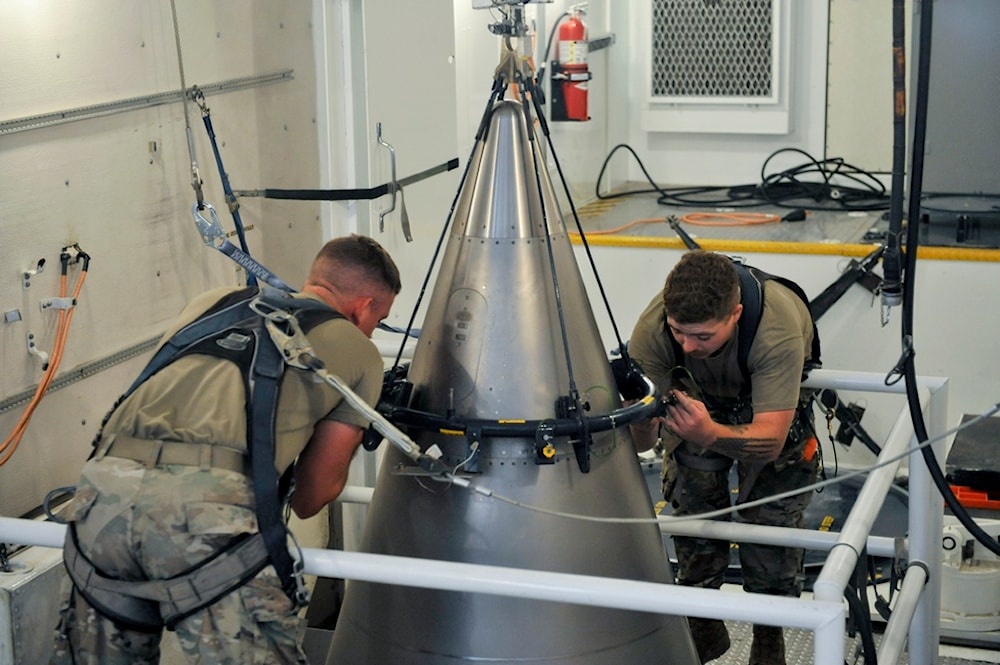US prepared 'rigorously' for nuclear threat in Ukraine since 2022: CNN
Despite rigorous efforts, there has been no intelligence indicating any mobilization of Russian nuclear forces in the region, the report said.
-

In this image provided by the U.S. Air Force, Senior Airman Jacob Deas, 23, left, and Airman 1st Class Jonathan Marrs, 21, right, secure the titanium shroud at the top of a Minuteman III intercontinental ballistic missile on Aug. 24, 2023, at the Bravo 9 silo at Malmstrom Air Force Base in Montana. After the shroud is secured, it is lifted off, revealing the black cone-shaped nuclear warhead inside (John Turner/U.S. Air Force via AP)
CNN reported on Saturday, citing two senior US officials, that the US began "preparing rigorously" since 2022 for Russia's potential use of a nuclear weapon in Ukraine.
But despite 'rigorous' efforts, there has been no intelligence indicating any mobilization of Russian nuclear forces in the region, the report said.
The assessment by the Biden administration wasn't reportedly reliant on a single indicator but rather on a combination of developments, analysis, and highly sensitive new intelligence.
"That's what the conflict presented us, and so we believed and I think it's our right to prepare rigorously and do everything possible to avoid that happening," the first senior administration official told the broadcaster.
The other source told CNN that the US concern "was not just hypothetical — it was also based on some information that we picked up."
Despite their comprehensive assessment, US officials reportedly remained uncertain about whether Moscow was deploying tactical nuclear weapons.
Read more: Biden foreign policy pushing world to nuclear war: Tulsi Gabbard
It is important to recall that in June 2023, Russian Foreign Ministry spokeswoman Maria Zakharova said that the US was attempting to "amplify horror stories" about the alleged use of nuclear weapons by Russia.
Her statements were issued after US senators introduced a resolution proposing to view Russia's potential use of a nuclear weapon in Ukraine as an assault on the NATO alliance.
The Russian Military Doctrine and the Fundamentals of State Policy in the Field of Nuclear Deterrence outline potential scenarios where Russia might employ nuclear weapons.
These include responding to aggression against Russia or its allies involving weapons of mass destruction, or in cases of conventional warfare threatening the state's existence.
First Strike
According to Al Mayadeen analysts, the actor that is most likely to initiate a nuclear exchange is none other but the US, given its history of foreign policy, reliance on militarism to maintain dominance, and strategic considerations in confronting geopolitical challenges.
Russia and China are less likely to do so because their policies are inherently focused on stability, deterrence, and avoiding escalations that could lead to catastrophic consequences for their respective nations and the world at large.
The atomic bombings of Hiroshima and Nagasaki in 1945 resulted in the deaths of an estimated 200,000 people, with many more suffering from injuries and long-term health effects due to radiation exposure.
On January 27, a report by The Telegraph uncovered several documents indicating the US intent to transfer nukes to UK, marking a first since 2008.
Read more: The Looming Threat of Nuclear War

 3 Min Read
3 Min Read








